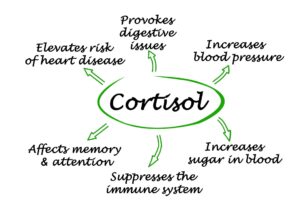
Calling a something the hormone of youth is a bold statement. I’m not a very black and white type of person but this is a hormone that gets little to zero attention, nor credit.
Ask most people on the street what is progesterone and the effects it has on the body and you may get a blank stare.
Ask the same question about estrogen and you should receive at least a guess.
Unfortunately, estrogen has taken the front seat in the last 70 years and tends to get most of the attention.
But progesterone is the hormone that should be in bright lights on Broadway. Below are just some of the benefits regarding health.
Role of Progesterone:
- maintaining pregnancy
- brain protective.
- thymus gland (immune system) function
- adrenal glands (anti stress function)
- relieves anxiety.
- improves brain function.
- promotes healthier bone growth.
- improves bulging veins by increasing tone of blood vessels
- thyroid functioning
- restores normal tone to smooth muscle (gall bladder, urinary bladder, cardiac, sphincters and uterus)
The hormone progesterone participates in practically every physiological process, in both men and women. It’s the dominant hormone during pregnancy and serves to stabilize the organisms, both mother and child during that crucial time.
Is it more than coincidental women comment about improvements in their hair, nails, skin and even eyesight while being pregnant? Could the phrase “you’re glowing” be a result of the usual 40 times increase in this hormone during ‘progest’tation?
Before delivery progesterone produces anesthesia and contributes to tissue elasticity. The fetus requires large amounts of glucose, and progesterone makes it possible to be provided in abundance which is ideal for brain growth.
The stabilizing action of progesterone is especially visible in muscle tissue, such as the uterus, blood vessel walls, the heart, the intestines and the bladder. Less visibly, progesterone stabilizes and normalizes nervous, secretory and growth processes. Biochemically, it provides the material out of which all the other steroid hormones (such as cortisone, testosterone, estrogen and salt-regulating aldosterone) can be made as needed.
Why this hormone and it’s benefits isn’t known by every female is borderline criminal.
It is one of the few essential requirements, besides nutrients, for nerve (brain) cell growth and survival. In young people of both sexes, the brain contains more progesterone than other organs do.
It really should be THEE hormone of youth
Some of the signs of a progesterone deficiency include:
- higher cortisol
- aging skin
- accumulation of fat
- osteoporosis
- hair loss
- fibroids
- heavy cycles
- infertility
- migraines
All these deficiency signs are typical signs of aging. Unfortunately a little more intrusive than grey hair and wrinkles.
If hormones are blamed for symptoms like edema and those above then shouldn’t a hormone also relieve those issues?
Unfortunately supplementing progesterone is still a misunderstood area when it comes to getting treatment. You don’t have to go far on google to find estrogen being the glorified hormone. It can get very confusing and frustrating for those looking for help.
The Women’s Health Initiative 2001 should have put the final nail in estrogens coffin.
160,000 women were studied in 2001 in the Women’s Health initiative. The study concluded estrogen therapy resulted in higher risk of cardiovascular disease and a multitude of cancers.
Barbara Seaman wrote a fantastic book about the massive study. The book goes deep into the history, the deceit, and fallout of estrogen therapy. The book will leave you highly ticked off but also informed.
The great attribute about progesterone is it’s simple molecular structure. It allows it to balance either an excess or deficiency of those other hormones.
Causes of low progesterone
Many factors, including poor nutrition, undereating, climate, emotional or excessive physical stress and toxins, can cause a progesterone deficiency.
Menopause happens when the balance of unopposed estrogen exceeds in relation to progesterone. This is contrary to popular opinion. Well, at least they are not using “the women runs out of eggs” theory any longer. 🙂
What to do?
There are many options. A combination of all would be wise.
Do your research.
It’s your body.
Find a doctor or practitioner who is willing to listen and is in sync with your approach.




